
““Where you will sit when you are old shows where you stood in youth” African Proverb

Shem Hotep ("I go in peace").
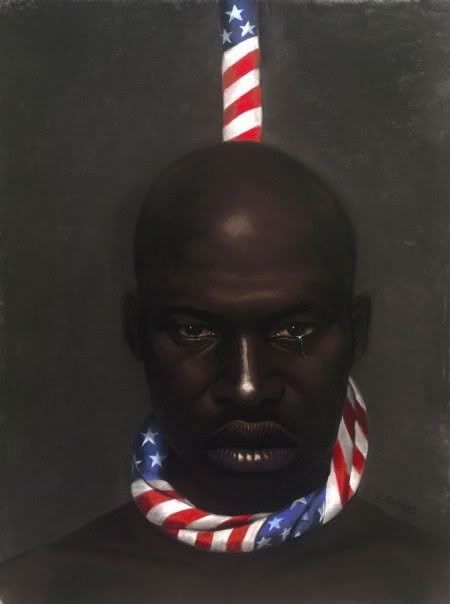

Read a Book. Cultural Genocide in the Black & African Studies Curriculum by Yosef Ben-Jochannan.
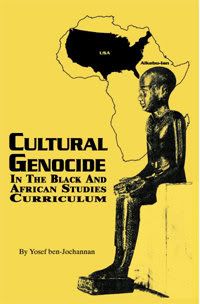
Read a Book. They Came Before Columbus: The African Presence in Ancient America. by Sertima Ivan Van, Ivan Van Sertima.
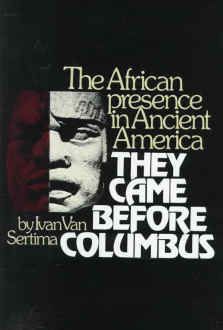
Read a Book. A Book of the Beginnings, Vol.1 by Professor Gerald Massey.
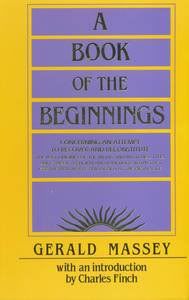
Read a Book. Ancient Egypt: The Light of the World by Professor Gerald Massey.
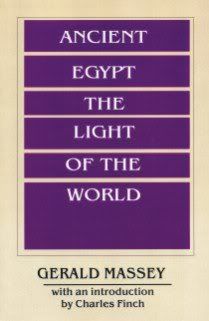

Don’t look at me, I didn’t write it.


WHAT IS THE ROOT OF ALL EVIL?
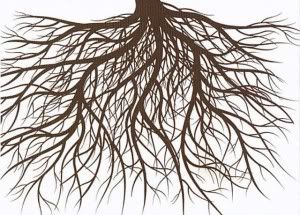
In conversation with some colleagues, an interesting question came up that left me slightly perplexed, and that hardly ever happens. Keep in mind we were discussing evil in general. Not just Eve biting into a fruit, but more like the seeded evil thought that made Lucifer oppose God in a perfect heaven? Ok, this was the question.
If God is the maker of all that is righteous and good, then where does evil come from?
A FLAWED BOOK?

The best selling book of all times is noted to be the Bible. It is also deemed the most controversial book ever written. Fabricated as a guideline for better living, yet from it some find truth and happiness, while others are fueled to hate. It has been a source of inspiration, enlightenment, confusion and even slaughter for two millennia (that’s two thousand years). How can a document that is declared celestially inspired by an omniscient holy being be so unclear? The apostle Paul wrote in I Corinthians 14:33, “God is not the author of confusion,” yet the bible emerges as the most confusing book ever produced. Hundreds of denominations and cults alike all support their conflicting doctrines using the same scriptures from the holy book as inspiration.
Why such a widely spread dissimilarity? Is it because it was poorly written? Are the incidents stated in its contents facts? Were the listed authors truly divine instruments used by God? Those have been some of the mind boggling questions that have rendered some of its more critical readers and theologians bewildered. But what of the average reader and some of its more faithful cohorts, what has got them so blindly reading with their heart, not with their eyes. The eyes can be deceiving, but the heart will never lead you wrong. What do we really know? Who really knows? Those are the more important question one should decipher when attempting to read the bible. It has to be approached free of theological bias and everything you were taught in Sunday school. It has to be approached like any other piece of literature you would pick up to read.
IS THERE AN ANSWER IN THE FAITH OF OTHER CULTURES?
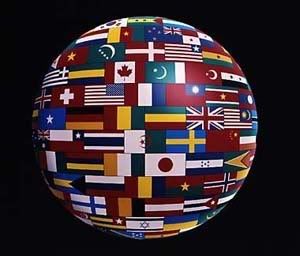
I don’t want to be perceived as a “Bible basher” but there are tons of unclear discrepancies throughout the Holy Bible; from the inconceivable concept that we all originate from Adam and Eve to the immaculate conception of a living saint. Why have people so willingly accept these stories and never question them? I was on a hunt for answers, and then it dawned on me to take a real close look at other cultures and their faiths and beliefs. Then I asked myself, “Are all denominations outside of Christianity doomed to hell?” Does that even sound coherent? Everybody seems to be stuck in an “I’m right, you’re wrong” mentality. So who is right? Who is wrong? I haven’t quite figured out the answers to that, but in investigating I popped opened a whole new “can of worms” with timelines. Some of these other religions date back before Christ; actually, some runs parallel with the time of Abraham and Moses. So why were they never mentioned in the bible. I won’t be the Judge; I’ll illustrate the picture and let you decide for yourself.
COULD IT BE THAT THE GREATEST STORY EVER TOLD IS NOT SO ORIGINAL?
The scary fact about these god-men is that they all preceded Jesus Christ and Christianity on the world religion timeline; so they are not copycats. I’m only highlighting three on here, but there seems to be a long list of others influencing different cultures and faiths. So what do we really know?
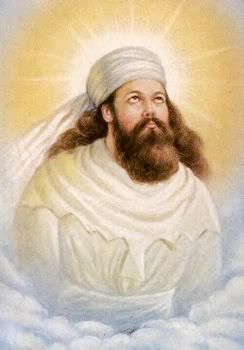
Zoroaster/Zarathustra of Persia
–Zoroaster was born of a virgin and “immaculate conception by a ray of divine reason.”
–He was baptized in a river.
–In his youth he astounded wise men with his wisdom.
–He was tempted in the wilderness by the devil.
–He began his ministry at age 30.
–Zoroaster baptized with water, fire and “holy wind.”
–He cast out demons and restored the sight to a blind man.
–He taught about heaven and hell, and revealed mysteries, including resurrection, judgment, salvation and the apocalypse.
–He had a sacred cup or grail.
–He was slain.
–His religion had a eucharist.
–He was the “Word made flesh.”
–Zoroaster’s followers expected a “second coming” in the virgin-born Saoshynt or Savior, who is to come in 2341 CE and begin his ministry at age 30, ushering in a golden age.
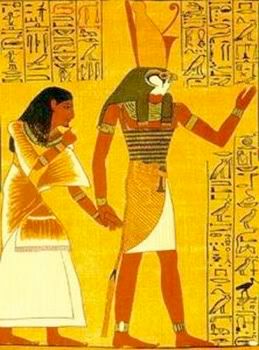
Horus/Osiris of Egypt
Now the story of Horus is even more peculiar to me because the Egyptians were actually mentioned in the bible, as an enemy who captured and enslaved the Hebrews who were designated as God’s chosen bunch. Only thing is the bible never mentioned what the Egyptians believed and worshiped. All that was ever mentioned was a golden calf. The proximity of Horus to Jesus is almost uncanny.
–Horus was born of the virgin Isis-Merion December 25 in a cave/manger with his birth being announced by a star in the East and attended by three wise men.
–His earthly father was named “Seb” (“Joseph”).
–He was of royal descent.
–At age 12, he was a child teacher in the Temple, and at 30, he was baptized having disappeared for 18 years.
–Horus was baptized in the river Eridanus or Iarutana (Jordan) by “Anup the Baptizer” (“John the Baptist”), who was decapitated.
–He had 12 disciples, two of who were his “witnesses” and were named “Anup” and “Aan” (the two “Johns”).
–He performed miracles, exorcised demons and raised El-Azarus (“El-Osiris”), from the dead.
–Horus walked on water.
–His personal epithet was “Iusa,” the “ever-becoming son” of “Ptah,” the “Father.” He was thus called “Holy Child.”
–He delivered a “Sermon on the Mount” and his followers recounted the “Sayings of Iusa.”
–Horus was transfigured on the Mount.
–He was crucified between two thieves, buried for three days in a tomb, and resurrected.
–He was also the “Way, the Truth, the Light,” “Messiah,” “God’s Anointed Son,” “the “Son of Man.”
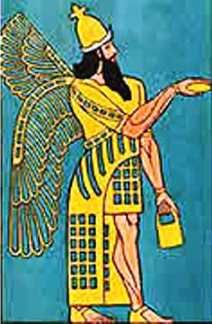
Attis of Phrygia
–Attis was born on December 25 of the Virgin Nana.
–He was considered the savior who was slain for the salvation of mankind.
–His body as bread was eaten by his worshippers
–His priests were “eunuchs for the kingdom of heaven.”
–He was both the Divine Son and the Father.
–On “Black Friday,” he was crucified on a tree, from which his holy blood ran down to redeem the earth.
–He descended into the underworld.
–After three days, Attis was resurrected on March 25 (as tradition held of Jesus) as the “Most High God.
UNDERSTANDING CHRISTIANITY.

Christianity originated with Jesus of Nazareth, a Jewish prophet and teacher who was acknowledged to be the Son of God and certainly was regarded as such by his 12 disciples. Jesus is said to have been born sometime around 4 BC and died 30 AD. He preached in Israel during the time of Augustus, urging a purification of the Jewish religion that would free Israel and establish the kingdom of God on earth. He urged a moral code based on love, charity, and humility and he asked the faithful to follow his lessons, abandoning worldly concern. Many disciples believed that a Final Judgment day was near at hand, on which God would reward the righteous with immortality and condemn sinners to everlasting hell.
Initially, Christian converts were Jewish by birth and followed the basic Jewish law. Their belief that Christ was divine as well as human, roused hostility among other Jews who awaited a Messiah foretold in the Old Testament.
Jesus won many followers among the poor. He also roused suspicion among the upper classes and the leaders of the Jewish religion. These helped persuade the Roman governor, already concerned about unrest among the Jews, that Jesus was a dangerous agitator claiming to be the pending Christ. Jesus was put to death as a result, crucified like a common criminal, about 30 A.D. His followers believed that he was resurrected on the third day after his death, a proof that he was the Son of God. This belief helped the religion spread farther among Jewish communities in the Middle East, both within the Roman Empire and beyond. As they realized that the Messiah was not immediately returning to earth to set up the Kingdom of God, the disciples of Jesus began to fan out, particularly around the eastern Mediterranean, to spread the new Christian message.
The Apostle Paul’s conversion to Christianity proved vital. Paul was Jewish, but he had been born in a Greek city and was familiar with Greco-Roman culture. He helped explain basic Christian beliefs in terms other adherents of this culture could grasp, and he preached in Greece and Italy as well as the Middle East. Paul essentially created Christian theology, as a set of intellectual principles that followed from, but generalized, the message of Jesus. Paul also modified certain initial Christian impulses. Jesus himself had drawn a large number of women followers, but Paul emphasized women’s subordination to men and the dangers of sexuality. It was Paul’s stress on Christianity as a universal religion, requiring abandonment of other religious beliefs, and his related use of Greek – the dominant language of the day throughout the eastern Mediterranean – that particularly transformed the new faith.
TRACING THE TRAILS OF JUDAISM.

Judaism is perhaps the oldest religion on the earth tracing its beginnings back to Abram, whose name was later changed to Abraham. The roots of Judaism dates back to around 1800 B.C., when Abraham refused to worship the idols which were common during that period. He is considered by most Jews to be the first to believe and worship one God (monotheism). From him the Jews draw a line of descent that begins with his son Isaac and his grandson Jacob, whose name was changed to Israel. Israel had 12 sons, who became the founders of 12 tribes. One of those was Judah, from which name the word Jew was eventually derived. in its more organized form, Judaism begun with Moses, who is believed to have received the Ten Commandments from God on Mt. Sinai after the Israelites’ Exodus from Egypt, around 1500 B.C. and credited with writing the first 5 books of the Bible – the Pentateuch or Torah – which largely define Judaism.
HINDUSIM, THE ETERNAL RELIGION.
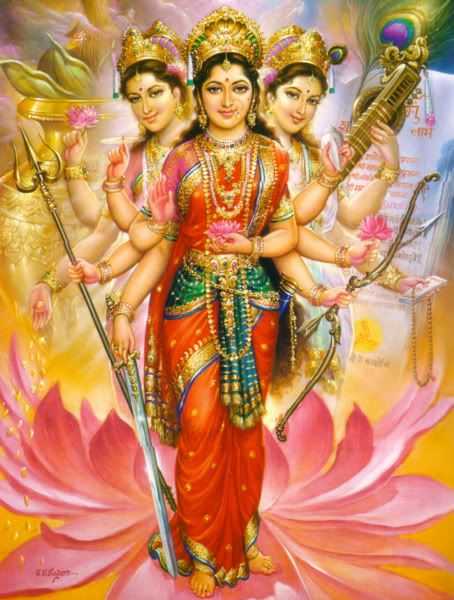
Hinduism has been categorized simply as the eternal religion (having no beginning and no end). According to historians, it origins back to 5,000 or more years (that is over 3,000 years before Jesus roamed the earth), making it the world’s oldest extant religion. The word “Hindu” is derived from the name of the River Indus, which flows through northern India. In ancient times the river was called the Sindhu, but the Persians who migrated to India called the river Hindu, the land Hindustan and its inhabitants Hindus. Thus the religion followed by the Hindus came to be known as Hinduism.
Hinduism is a collection of religious, philosophical, and cultural ideas and practices that originated in India, characterized by the belief in reincarnation, one absolute being of multiple manifestations, the law of cause and effect, following the path of righteousness, and the desire for liberation from the cycle of births and deaths.
Hinduism cannot be neatly slotted into any particular belief system. Unlike other religions, Hinduism is a way of life (Dharma), the law that governs all action. The religious tradition of Hinduism is solely responsible for the creation of such original concepts and practices as Yoga, Ayurveda, Tantra, Vedanta, Karma, etc.
Hinduism believes that there is only one supreme Absolute called “Brahman.” However, it does not advocate the worship of any one particular deity. The gods and goddesses of Hinduism amount to thousands or even millions, all representing the many aspects of Brahman. Therefore, this faith is characterized by the multiplicity of deities. The most fundamental of Hindu deities is the Trinity of Brahma, Vishnu and Shiva – creator, preserver and destroyer respectively. Hindus also worship spirits, trees, animals and even planets.
Hinduism is believed to have grown out of the religion described in the Vedas, the binding spiritual laws and the earliest piece of written Hindu work; written by several progressive beings over a long period of time making the origin of religion even more complex. Vedas are the most sacred Hindu texts believed to have been transmitted orally for several millennia.
A BRIEF HISTORY OF ISLAM.

The name Islam, is derived from the Arabic word “salam,” which is often interpreted as meaning “peace” or “submission.” The religion claimed to be the revelation of God (Allah) through the angel Jibril a.k.a. Gabriel to a man named Muhammad (pbuh). Muhammad was born in approximately 570-571 AD. He was born to the powerful tribe of the Quraish in Mekkah (Mecca), what we now call Saudi Arabia. His father’s name was Abdullah. His mother’s name was Aminah.
Abdullah was a merchant who made caravan trips. He died on a trading trip soon after his marriage to Aminah, leaving Muhammad fatherless at birth. Aminah, his mother, died when he was only six years old. Muhammad was taken in by his grandfather, only to have him die when Muhammad was eight years old. At this time, his uncle, Abu Talib, one of the leaders of the Quraish tribe took him in and raised him
Having married the wealthy Khadijah, Muhammad became a gentleman of leisure and somewhat of a philosopher. He would retreat from society; take trips into the desert and mountains. He would spend his hours in meditation, greatly concerned about the condition of the civilization he saw around himself. He had a personal mission to find “truth.” One of his frequent places of seclusion was a cave on Mount Nur. It was while in this cave, during the month of the Ramadan, a pagan festival, that he received his first visitation from the angel Gabriel.
At first, Muhammad shared his new revelations with only his family and close friends. During the next three years the message of Muhammad quietly spread among the people of Mekkah, especially among the youth. Then Muhammad is believed to have received instructions from Allah to go public with his message and openly condemn the paganism and idolatry of Mekkah.
Muhammad continued to proclaim his message, and his following slowly grew. At one point, in 621, a group of delegates from Madinah (Medina) responded to his call and made a covenant with Muhammad and declared themselves to be Muslims. Eventually, the Muslims collected Mohammad’s messages and gathered them into a book known as the Quran. The Quran is the holy book of Islam. It has been translated into many languages, but many Muslims believe that the only true version of the Quran is written in Arabic.
THE ORIGIN OF BUDDHISM.
The title Buddha means “Enlightened One” or “Awakened One.”
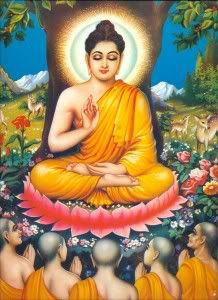
Buddha was born Siddhattha Gautama around 565 B.C. in Lumbini (a town situated in modern Nepal, near the Indian border). His name means descendant of Gotama whose aims are achieved/who is efficacious in achieving aims. He later became the Buddha (Enlightened One or Awakened One). He is also commonly known as ‘Shakyamuni’ or ‘Sakyamuni’ (The sage of the Shakya clan) and as the Tathagata (thus come or thus gone).
Few of the details of the Buddha’s life can be independently verified, and it is difficult to determine what is history and what is myth.
According to most Buddhist traditions, Siddhattha Gautama, the future Buddha lived many lives before coming to our present world era. In his many existences during the long, long period of time and in the one hundred thousand worlds, the future Buddha had fulfilled the Ten Paramitas, and, in order to save this world, he was to be born in our era and to become a fully enlightened Buddha.
BUDDHISM IN CHINA.

Buddhism was introduced from India into China in 6th Century AD. One of the Hen Emperors sent a mission to the west of China and brought back the scriptures, Indian monks and the images of Buddha. Since then Chinese translation was made available and the further exchange of scholars among China, India and other Asian countries brought about the rapid development of Buddhism in China. Buddhist monasteries and temples were built to promote the Buddhism and some of the Emperors were also the followers of Buddhism. Buddhism, just like Confucianism and Taoism, guides people to behave, to be honest and responsible. It promotes harmony and peaceful mind, sharing and compassion. Buddhists never force people into their belief. Buddhism emphasizes in “awakening of mind”. Through learning, one will develop intellectual capacity to the fullest so as to understand, to love and be kind to other beings.
Buddhism does not believe in God. It believes in People. In Buddhist teaching, there is no aggressive promotion of Buddhism or strong rejection of other religions. All these make Buddhism fall into the same scope of Confucianism and Taoist. Its ability to co-exist with any other religions makes it being developed into one of the largest religions in China.
IS THERE A RIGHT OR WRONG?
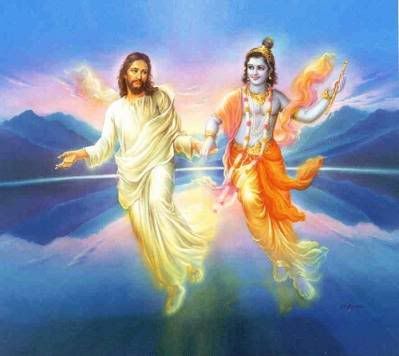
Jesus of Nazareth and Krishna of India could they be one of the same? People like to put a recognizable face on unfamiliar things so that they can relate to it. African Americans are now giving Jesus a black face. Does that make it wrong if the praises are all being directed to the same place regardless? It could be a classic case of the, “You call it Tomato, I call it Tomaato.





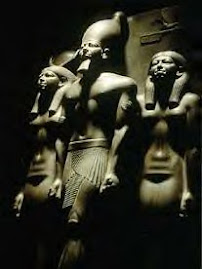









2 comments:
(1)JUDAISM STARTED3500BC,
(2)SANTANA(HINDUISM)STARTED 1500-1000BC
(3)CHRISTIANITY
(JUDAISM + CHAPTER OF CHRIST)30 AD
(4)BUDDHISM STARTED 563BC
(5)JAINISM STARTED 543 BC
(6)ISLAM STARTED
(JUDAISM + CHAPTER OF MD.PAGAMBER) 570 AD
(7)SIKHISM STARTED 1493 AD
THEREFOR
OLDEST RELIGION OF THE WORLD IS - JUDAISM
Any other book written with similar violence and adult situations would have some sort of warning about age limits.
www.HolyBibleSearch.net & www.BibleGateway.com let you search, study, read or listen to the Bible scriptures online in almost 200 translations/dialects (free & no sign-up).
Post a Comment